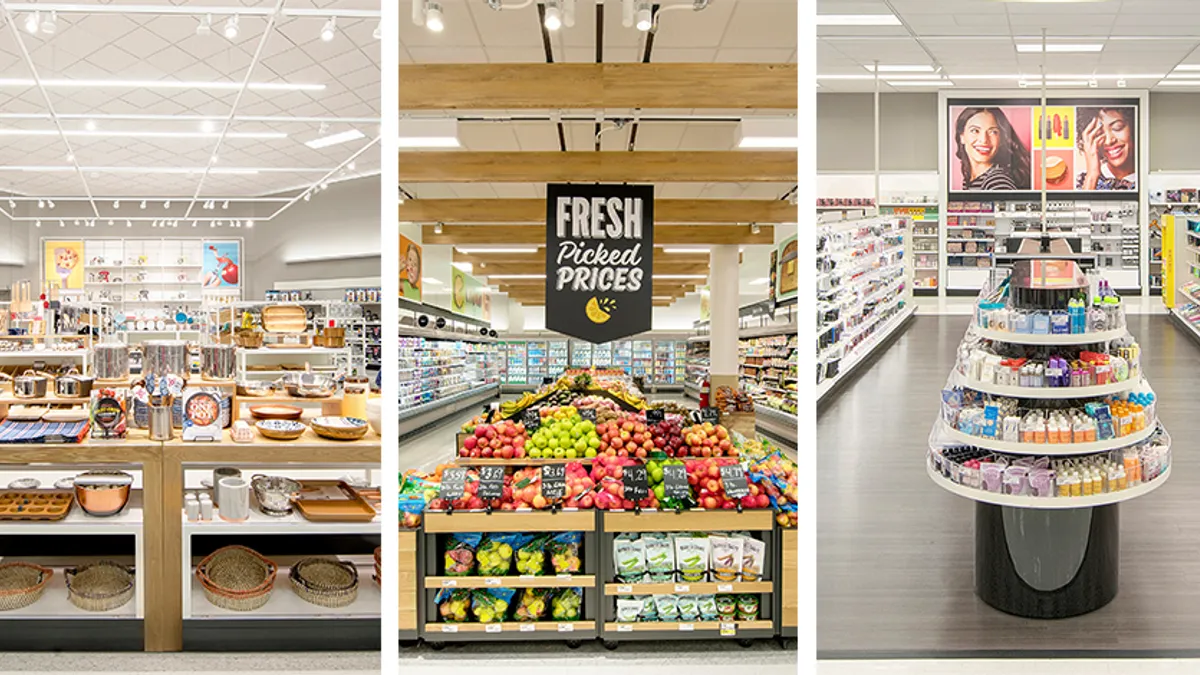Dive Brief:
- Some retailers are having to survive the "Retail Apocalypse," in reference to the phenomenon in which many retailers have filed for bankruptcy following the rise of e-commerce, according to a CB Insights report.
- Some key strategies surviving retailers use include: innovating their own private label brands, creating brand loyalty with established brands, streamlining supply chains and logistics, digitizing operations and acquiring delivery startups or other tech-savvy startups.
- While some retailers employing these strategies are still underperforming, the strategies allow them to at least stay above water.
Dive Insight:
It's no secret retailers are struggling to maintain relevancy in an economy driven by fast-changing consumer tastes and expectations. E-commerce more easily serves the consumer in a way that many retailers cannot, but as CB Insights points out, retailers can still compete by differentiating themselves from their e-commerce competitors and startups and by streamlining supply chains, logistics and operations.
Two flourishing retailers, Dollar Tree and Dollar General, are catering to consumers by optimizing prices. As the middle class continues to decrease — widening the gap between low and high income Americans — more consumers are turning to cheaper retail alternatives to save money.
That's why Dollar Tree is opening 320 new stores in 2018 and Dollar General is opening 900, while bankrupt retailers including Gymboree, Payless and RadioShack closed 350, 800 and 1,000 respectively in 2017 alone.
Meanwhile, grocers like Target and Kroger are relying on developing attractive private labels and fortifying existing relationships with landed brands to differentiate themselves from cheaper grocers.
Fast-fashion retailer Zara has managed to shorten its total supply chain time to 25 days from design to storefront, and so did Hostess Brands after recovering from its bankruptcy in 2013.
But e-commerce startups in a variety of industries — e.g. fashion, food — are using software and AI to beat even surviving retailers to the punch, which is why Walmart is acquiring so many of them and working toward fully digitizing its operations.
The big takeaway is, improving one's supply chain while differentiating oneself from other companies is critical for retailers seeking to avoid bankruptcy. In 2017, about 40 retailers filed for bankruptcy, and it remains to be seen how 2018 will shape up.
Consumers' expectations and tastes are accelerated, which means lead times need to be shorter and turnarounds faster. Furthermore, the retail industry is so flooded with competition from e-commerce startups that retailers can't afford to ignore innovative differentiation.
Retailers must give consumers a compelling reason to shop with them, otherwise, consumers will seek alternatives.














